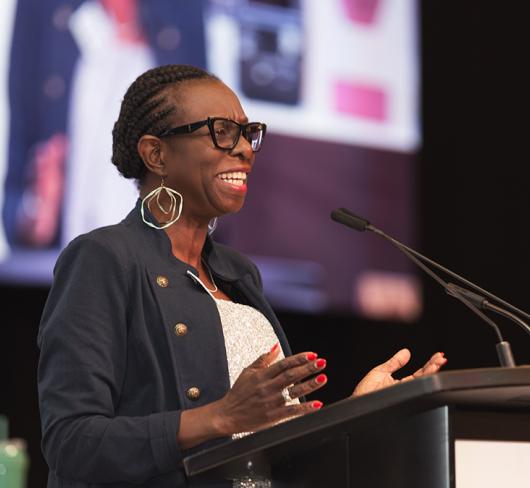Teachers Can’t Ignore Politics (From the President)
Early in my teaching career I came to understand the extent to which public education is intricately entwined with politics. Governments of all stripes use public education to demonstrate commitment to their political goals—be they cost-cutting, social justice and equity, or economic growth. I learned very early on that teachers’ working conditions are often affected by seemingly arbitrary political acts.
When I began teaching in 1992 I looked forward to a career as an intermediate classroom teacher. I believed naively then, as many new teachers do, that I could simply shut my classroom door and the politics of education would not enter my life as a teacher.
Then a recession hit and, while it was not as severe as the one we are experiencing today, Ontario was particularly affected. The province lost industries and jobs. Seeking to reduce its budget deficit, the NDP provincial government announced restraint measures and forced a ‘social contract’ upon various public sector unions.
For teachers this meant an agreement that froze our salaries. There would be no incremental increases, no moving up the grid. This agreement created a generational divide: those new to the profession, not already earning the maximum salary, bore the brunt of the burden.
I was one of those teachers, and the unfairness of that agreement moved me to become involved in federation activities. Just eight years after I first stepped into the classroom I became the president of the 3,500 member York Region Local, having served as chief negotiator, political action chair, and local vice-president.
The 90s were a decade of tremendous politically-driven change in education. The social contract was followed by huge cuts to education budgets made by the Conservative governments of Mike Harris and Ernie Eves. These governments denigrated public servants, unions, and teachers in particular. Government proposals to test teachers implied that many were incompetent. Mandatory “voluntary activities” were legislated, although never proclaimed into law. Moves to institute standardized testing of students underlined the belief that without external ‘validators’ teachers could not be relied upon to do their jobs.
Those of us active in teacher federations worked to protect public education. We staged days of protest and a two-week job action in 1997. I became more convinced than ever that political action was key to improving teaching and public education.
The government forced amalgamation of local governments and school districts in the name of ‘efficiency’. In 1998, in the midst of this, ETFO was created. I joined the executive of the newly-formed federation in 1999. I became a vice-president in 2002, first vice- president in 2005, and president in 2007, some 14 years after first becoming active.
My work as an ETFO activist would not have been sustainable if I did not believe in the need for social justice and equity in teaching. It began with wanting fairness for young teachers. Today we are working for fairness for all elementary teachers. Our campaign to Close the Gap has been at its heart a campaign to create equity between teachers and students in the elementary panel and those in secondary schools.
My own activism in ETFO made me believe I could make a difference. The strength of our union is its people. I encourage you to use your skills and talents to work to make a difference for yourself and your colleagues—and, ultimately, for the students we teach.

